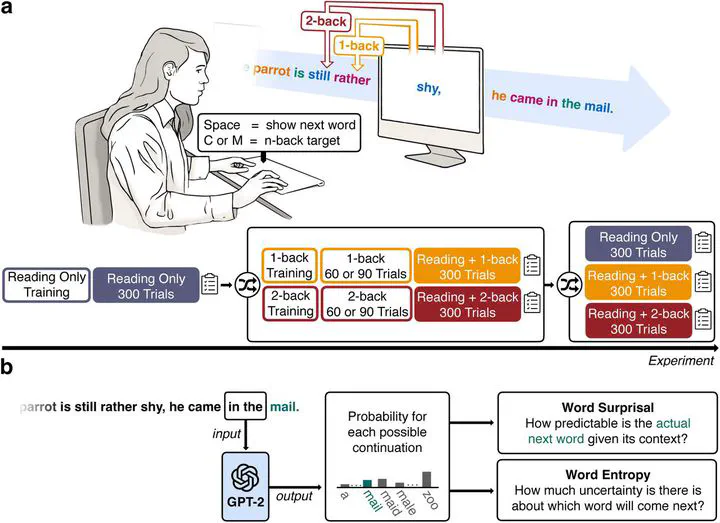Executive Resources Shape the Effects of Language Predictability Across the Adult Lifespan
May 1, 2024· ,,,,
,,,,
Merle Schuckart
Sandra Martin
Sarah Tune
Lea-Maria Schmitt
Gesa Hartwigsen
Jonas Obleser

Abstract
Humans predict upcoming language effortlessly, but the cognitive costs of these predictions remain debated. In this study, we demonstrate that limiting executive resources through a concurrent task reduces the effect of language predictability on reading times. Participants (N=175, replication N=96) read short articles presented word-by-word while completing a secondary font colour n-back task, thus varying cognitive demand. Language predictability was indexed by word surprisal as derived from a generative pre-trained transformer model (GPT-2). Our results show that predictability effects increase with age (18–85 years), and across both samples, higher cognitive load consistently diminished the impact of word predictability on reading speed. These findings highlight the resource-dependent nature of predictive mechanisms in language comprehension across the lifespan. We conclude that linguistic predictions rely on executive resources, which helps resolve the debate about the cognitive cost of predictive language processing.
Type